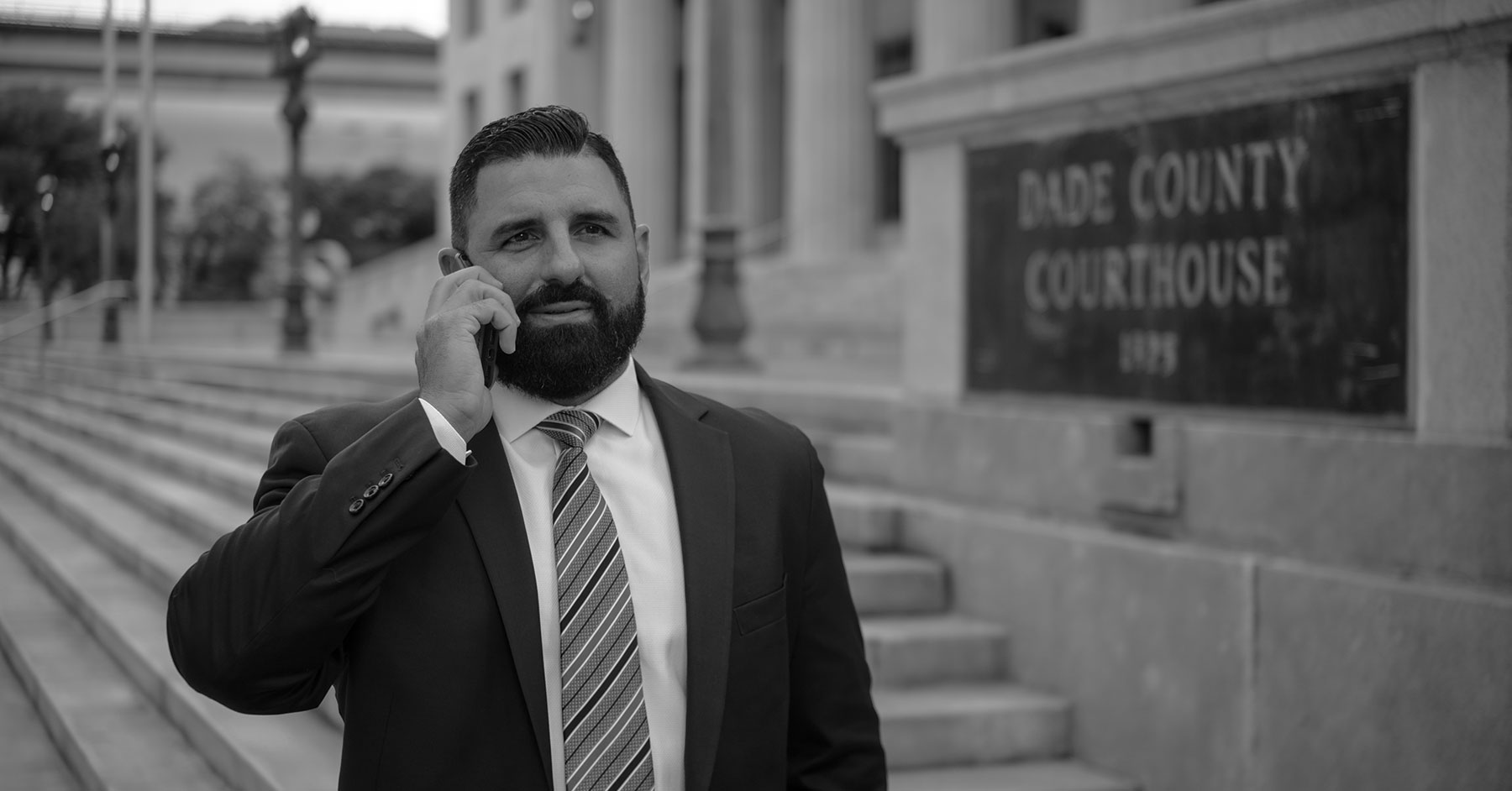Can I Drink Alcohol While on Probation in Florida?
If you are released on probation in Florida, you will be expected to adhere to a set of conditions during the entire probation term.
Failure to follow one or more of these conditions is known as a probation violation and could result in jail time.
Accidental breaches are unlikely to result in jail, but willful and/or repeated probation violations are treated more harshly by the Florida justice system and could lead to significant time behind bars.
If you are on probation for a Florida DUI or another alcohol-related charge in Florida, you may be wondering if you can drink alcohol. Criminal defense attorney Nayib Hassan is often asked by clients, “Can I drink while I’m on probation in Florida?”
As with many aspects of the law, there is not a straightforward answer to this question. Several different factors can influence the requirements you have while you are on probation.
Is alcohol prohibited on probation?
When released on probation, you can expect the terms of your release to include certain common restrictions like not committing a new offense. However, the terms of probation differ from case to case.
A common requirement is also to remain drug-free but, generally speaking, this does not include alcohol.
However, if the original offence for which you were arrested and charged involved alcohol, such as driving under the influence (DUI), then you may be forbidden from consuming any alcohol during the entire probation period.
Even if you are not prohibited from consuming alcohol but you commit another crime on probation while under the influence of alcohol, you can expect harsh consequences: a revocation of your probation and new criminal charges for the offense are likely as it will be treated as a substantive violation of your probation.
How do the Florida courts know if I drink on probation?
The justice system in Florida now frequently uses technology to track the movements and behavior of those released on probation.
For instance, a DUI offender may be fitted with a SCRAM monitor bracelet. This is an electronic monitor that samples an individual’s perspiration every 30 minutes. The courts would know from the reported results of these samples whether you have consumed alcohol and they could take action accordingly.
Another way to determine alcohol consumption is to mandate a series of alcohol tests to be performed periodically during probation.
What happens if you test positive for alcohol on probation?
If your probation expressly prohibits the possession or consumption of alcohol and you are found to have broken this rule, it will likely be seen as a violation of your probation even if no crime was committed while under the influence of alcohol.
The violation will be reported to your probation officer, who will then need to report the finding to the judge. An arrest warrant may be issued, and you could be sent to jail although you will have a chance to explain your actions — which is where the assistance of a seasoned criminal defense lawyer may help.
How long does alcohol show up for in probation drug tests?
A probation alcohol test may be an EtG, which is a urine test for the presence of ethanol, the intoxicating agent in alcohol.
Results generally show alcohol in the urine if you have been drinking within the last 48-72 hours — but are unlikely to show for this long if you only drank mildly. In most cases, 12-48 hours is a good yardstick to use if you have been drinking when you should not have been. Some more advanced tests (such as hair tests, for instance) can detect alcohol much later though — up to 90 days!
It is best not to take any chances with this. If you are prohibited from drinking, the only safe alcohol level is zero.
Are there dangers in quitting alcohol suddenly whilst on probation?
For severe alcoholics who are asked to refrain from drinking while on probation, there is a clear dilemma.
Suddenly quitting alcohol can cause withdrawal symptoms and some major health issues, such as nausea, anxiety and disrupted sleep and eating patterns. Delirium Tremens (DT) or uncontrollable shaking, confusion and hallucinations can also occur.
It is, therefore, important to let the court know if you are dependent on alcohol and, if prohibited from using alcohol, arrange for the appropriate medical care in the immediate period after you stop drinking.
Understand the terms of your probation
Understanding the precise terms of your probation — and following them to the letter — is critical. If you are not sure about something, check with your parole officer or your criminal defense lawyer.
Even though you are on probation, you still have rights and sometimes law enforcement oversteps its powers with search and seizure procedures. It may be possible for a criminal defense lawyer to mitigate the consequences of a violation.
If you require legal representation or have questions regarding probation, please do not hesitate to contact us online or by phone at (305) 403-7323.

